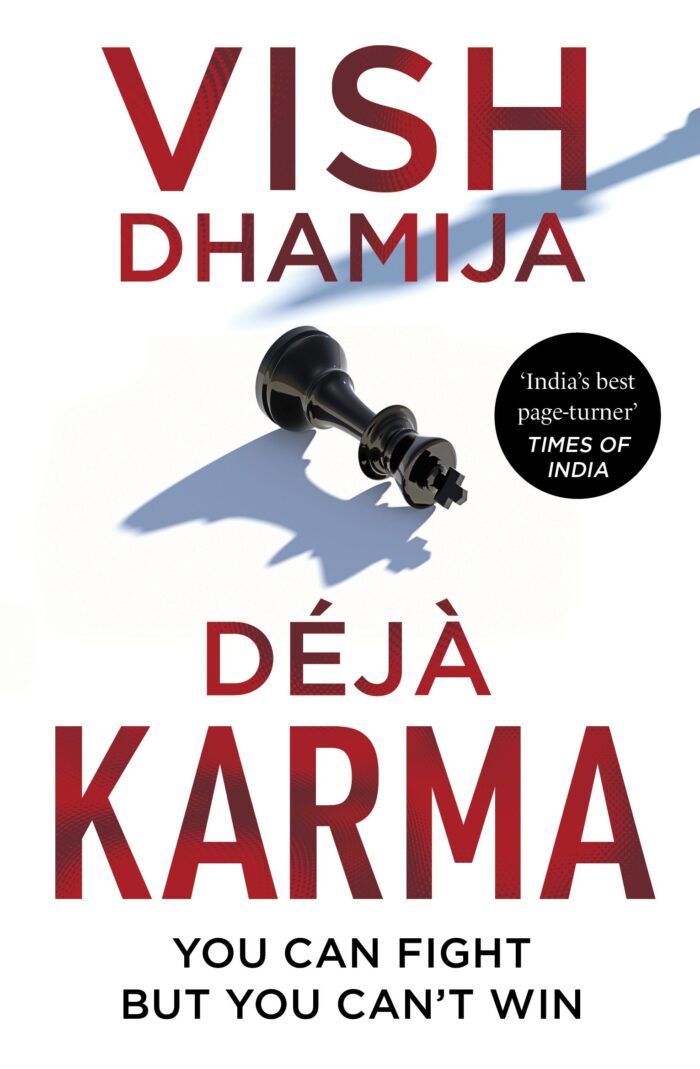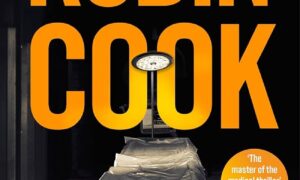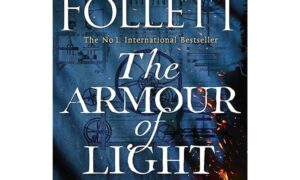
With eleven crime novels to his credit, Vish Dhamija is one of the best Indian crime fiction writers in the country and he is back with an edge-of-the-seat, unputdownable new crime thriller, Déjà Karma .
5
SWAMIJI.
Yes, that’s what I have called him since I was six or seven. Or perhaps even eight. It’s been such a long while that I don’t exactly remember. I didn’t know his name; I still don’t know his name. He visited our home sometimes, but, predominantly, it was my mother who travelled to him during the daytime. As I was too young to be left alone at home, I tagged along. He lived in a decrepit, jerry-built house made of baked clay with cow dung slapped on the walls and a corrugated tin roof that I feared would fall anytime. It was always dimly lit. The temperature inside used to be baking hot and, if that wasn’t enough to endure, there were a dozen or more cheap lit incense sticks that let out a profusion of smoke, and the resulting stench – a fusion of cow shit and synthetic sandalwood – was nauseating, to say the least. The incense sticks were supposed to cleanse and give the place a religious feel, which only the Swamiji might have found purifying and fragrant. On the flip side, it taught me to hold my breath for longer intervals to avoid filling my nostrils with the sickening odour.
Swamiji always wore a saffron loincloth. That’s all. He was, at all times – summer or winter – bare-chested and barefoot; grey hair covered his entire body like pelage. And he had probably never heard of deodorant. He must have been in his fifties. The face a permanent red and sunburnt, and his long, unkempt hair was tussled into a tail. He sometimes carried a small trident in his right hand to remindpeople that he was a holy follower of Shiva, and as such had more powers than other mortals that visited him, though I never saw any other soul, besides us, at his house when we visited him.
Our visits had a distinctive routine. We started late in the mornings, usually after my father left for office. My mother drove our old grey Premier Padmini from Vasant Vihar to Patparganj – a distance of less than twenty kilometres, but it took over an hour in the traffic, and as we crossed the river Yamuna the pot-holed, crowded lanes took their toll on travel. The stench was a precursor to one I’d experience only a while later at Swamiji’s place. It was for me, or anyone else who lived in posh New Delhi, another world: the topography, the housing, the edifices, the people, their minimalistic and tattered clothing, all looked alien. Blatant poverty was on display everywhere; even the few cars on the roads – the place was flooded with scooters, motorcycles, cycles, auto rickshaws and cycle-rickshaws – were rundown.
We parked quite a distance away from his hovel, as the dirt road that led to the holy shanty didn’t allow cars. I sprinted along with my mother, holding her hand, as she walked swiftly to Swamiji’s hut. She never looked up or acknowledged anyone around, not that anyone there would have known her. Swamiji never came out of his hut to greet anyone, and you only met him once you were cleansed. There was a municipal hand pump to dispense water right outside his dwelling, and mere mortals were supposed to wash their limbs before entering his sacred shithole. Admittance into his abode was solely bare-footed, like any footwear would soil his muddy, tile-less floor any further. And the stench, oh lord, the stench. I sometimes still feel queasy when I think of that malodour. Anyway, once we were in the shack we separated, my mother and I. For the next two hours or so – that obviously seemed like a lifetime to me, every time
I was expected to wait in the outer section of the hut and read the Archie comic digests I carried. Two hours. Sometimes, I wondered if
my father had any inkling about my mother’s clandestine meetings with the swami, though everything conveyed to me it wasn’t.
If I needed water, well, there was the hand pump right outside the door, and if I needed to relieve myself, I could go behind the hut and do the job outdoors. Unsurprisingly, I was curious about the mystical adventure that transpired in the adjoining room, with my mother and Swamiji alone in the dark, but I never dared to even peep in. And though at the time my puerile mind was inept at comprehending what happened in the adjacent room, as I came of age my mind drew obvious inferences; whether they were right or if I misconstrued I would never know and never challenge or probe. But it sickened me for a long time. It even bothers me to no end now sometimes. Swamiji – a man of God – and my own mother? Sheesh! An apparently palpable truth I did not want to believe. The whole ritual seemed more Mephistophelean than religious to me. But what did I know?
When my mother eventually emerged from the dark chamber, I always felt her face carried a guilty expression. Swamiji didn’t come out to see us off after the ‘spiritual’ two-hour sessions. The return journey from Patparganj to home was equally uninteresting too, with an added discomfort, as neither of us spoke on the one- hour drive home.
The most remarkable part is that Swamiji vanished from our lives the night my father was murdered. He did not come even once to console his earnest devotee – my mother – when she might have required the spiritual strength most. But as I’ve said before, I have faint reflections that someone else was present in our house the night my father got killed. And if Swamiji, indeed, had any part in murdering my dad – or helping my mother in the hideous act – and had got away with it successfully, why would he even hang around in the city, forget coming to see my mother?
In my mind, Swamiji was the most logical suspect. But, of course, that Swamiji was even involved was only conjecture on my part. My mother never uttered a word or gave anyone any indication that he was.
And I never saw Swamiji again.
The Author
Vish Dhamija is the bestselling author of eleven works of crime fiction, including Unlawful Justice, Bhendi Bazaar, The Mogul, The Heist Artist, Doosra, Prisoner’s Dilemma, and Cold Justice. He is frequently referred to in the Indian press as the ‘master of crime and courtroom drama’. In August 2015, Glimpse magazine called him ‘India’s John Grisham’ for stimulating the genre of legal fiction in India. His crime thrillers have been called “India’s best page-turner”. His book, Bhendi Bazaar (HarperCollins India) featuring DCP Rita Ferreira was the #1 Bestseller on Amazon Crime for 10 weeks and a major production house recently acquired the rights to it.
Book Excerpt: Page 65-68
(Extracted with due permission from author, publisher)
[the_ad id=”55725″]


















